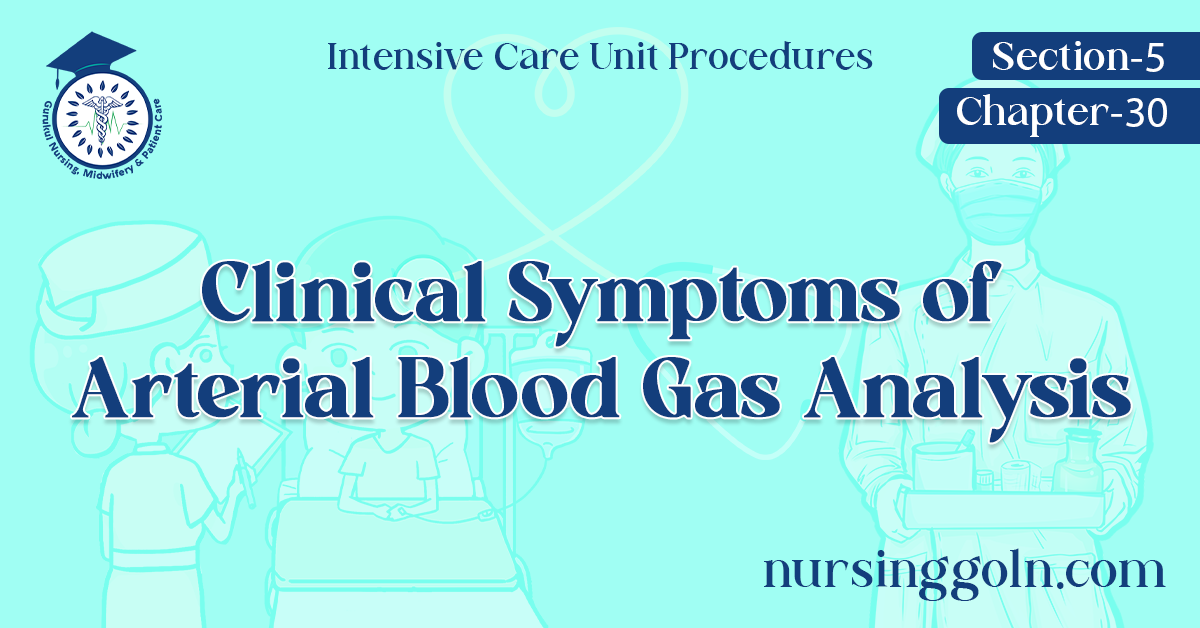Today our topic of discussion is Clinical Symptoms of Arterial Blood Gas Analysis.
Clinical Symptoms of Arterial Blood Gas Analysis

Clinical Symptoms
Metabolic acidosis: It occurs when there is decreased bicarbonate either due to loss or the use in mopping up excess acid. The loss of bicarbonate can be through the gastrointestinal tract (diarrhea) and urinary tract.
Clinically, this will because Kussmaul’s respirations, poor peripheral circulation, raised potassium, cardiac dysrhythmia and drowsiness. The treatment depends on underlying cause and administration of intravenous sodium bicarbonate.
Metabolic alkalosis: Metabolic alkalosis occurs when bicarbonate is raised due to acid loss or excess alkali. Possible causes are loss of fluid through vomiting, nasogastric suction, gastrocolic fistula, diarrhea and diuretic abuse.
It can also result from hyperaldosteronism and Cushing syndrome. Raised alkali levels can result from sodium bicarbonate administration and antacid abuse. The clinical effects are confusion, exaggerated reflexes, tetany and convulsions. Treatment is aimed at the primary cause and replacing potassium.
Respiratory acidosis is caused by the retention of CO, due to hypoventilation. It can result from drug or alcohol overdose, trauma, tumor, myasthenia gravis, Guillain Barré syndrome, tetanus, and organophosphorous poisoning.
Respiratory causes include conditions which compromise gas exchange such as severe asthma and emphysema. Respiratory acidosis causes diminished mental state, muscle twitching, sweating, peripheral vasodilation, hypertension and cardiac dysrhythmia. Treatment is by reversal of underlying pathology and mechanical ventilatory support to help blow off excess carbon dioxide.
Respiratory alkalosis occurs when there is decreased carbon dioxide in the blood as a result of hyperventilation. Behavioral causes are voluntary or hysterical hyperventilation, pain and anxiety. It can also occur because of neurological problems such as stroke or tumor, respiratory problems such as pulmonary embolus or high altitude.

Respiratory alkalosis causes impaired consciousness, seizures, hypotension, hypokalemia increased muscle tone and tetany. The underlying cause should be treated. Patients who can breathe spontaneously can rebreathe their own carbon dioxide by breathing into a paper bag.
Overproduction of acid can be caused by diabetic ketoacidosis or lactic acidosis resulting from hypoxia, shock, heart failure or liver disease. Outside sources of acidosis include excess levels of salicylates such as aspirin
